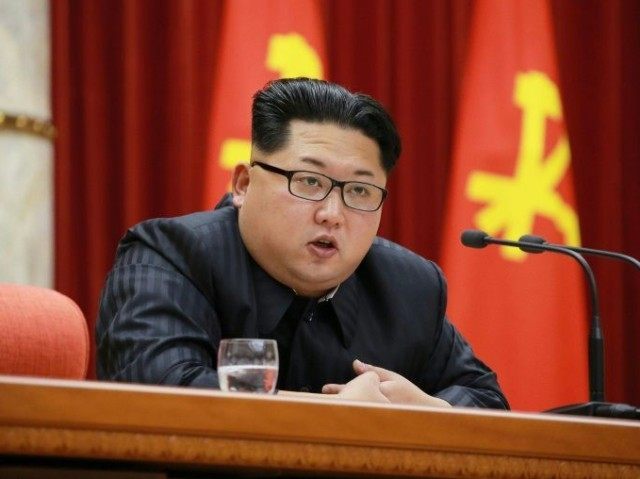On Wednesday, South Korean officials rejected yet another call from Pyongyang for bilateral talks, as the communist Kim Jong-un regime pushes for a “reunification” plan that would put Seoul under his command.
South Korean news agency Yonhap noted that this is the sixth day in a row that North Korean officials have attempted to establish talks with Seoul, as the nation’s propaganda outlets ramp up their talk of “reunification” with the South. North Korean officials first reached out to South Korea on Friday, looking for a “working-level meeting” within the next month. The talks would reportedly require neither side to enter them with preconditions, something South Korea has rejected.
The call for talks Wednesday followed a stern rejection out of Seoul the day before, when the South Korean Defense Ministry issued a statement clarifying that it has no interest in negotiations with North Korea. “There is no change of position from our government that North Korea’s denucleartization should be the top priority in regard to any dialogue with North Korea,” the statement read.
Foreign Ministry spokesman Cho June-hyuck added in his daily press briefing that South Korea was not quick to forget the barrage of threats and insults from Pyongyang in the last few years. “If the North genuinely wants peace and stability on the Korean Peninsula, it should refrain from threats and provocations, while showing its strong will for denuclearization,” he said.
North Korean media appear to be hoping that the South can overlook such provocations. In a piece published by the state-run Korean Central News Agency (KCNA) this week, for example, the publication argued that “the DPRK’s access to nukes has, in fact, nothing to do with the north-south relations. The more desperately the south Korean authorities mix the north-south relations with the nuclear issue, the deeper quagmire they will find themselves in.”
On multiple occasions this year, however, North Korean state propaganda has threatened to use nuclear weapons against South Korea. Multiple videos broadcast in North Korea depict a nuclear attack on the Cheongwadae, the South Korean presidential offices. North Korean newspapers have threatened to “scorch” President Park Geun-hye, who for years has been referred to by North Korean media with such insults as “bitch,” “old cat,” “idiot,” and “cold-blooded animal.”
Satellite images appear to show that North Korea is also building a replica Cheongwadae, presumably to use as a target for a new nuclear test.
It is not clear why Kim Jong-un’s government has changed its tone towards South Korea, though many speculate that the economic impact of the latest round of UN sanctions, the strongest ever, could be hurting North Korea enough for it to reconsider its tone towards its closest neighbor. Nonetheless, North Korean propaganda claims that the people of South Korea are ready to unify under Kim Jong-un. “The atmosphere of national reconciliation and unity is running high nationwide and the south Korean people from all walks of life are becoming increasingly vocal calling for dialogue and negotiations between the north and the south,” a column in the Rodong Sinmun, the state newspaper, read this week. The column explained why Pyongyang reached out for talks:
In fact, the biggest factor of obstructing the improvement of the north-south relations is the military provocations by the south Korean authorities at present. That was why the DPRK side proposed a working-level contact for the opening of the north-south military authorities’ talks for the military detente on the Korean peninsula a few days ago.
Among the articles calling for reunification, however, are a number once again attacking South Korea. In one article, Rodong Sinmun accuses American soldiers of “polluting” much of South Korea. In another, the newspaper accuses the nation’s national assembly of being “the worst vegetable-like National Assembly,” with little explanation.

COMMENTS
Please let us know if you're having issues with commenting.